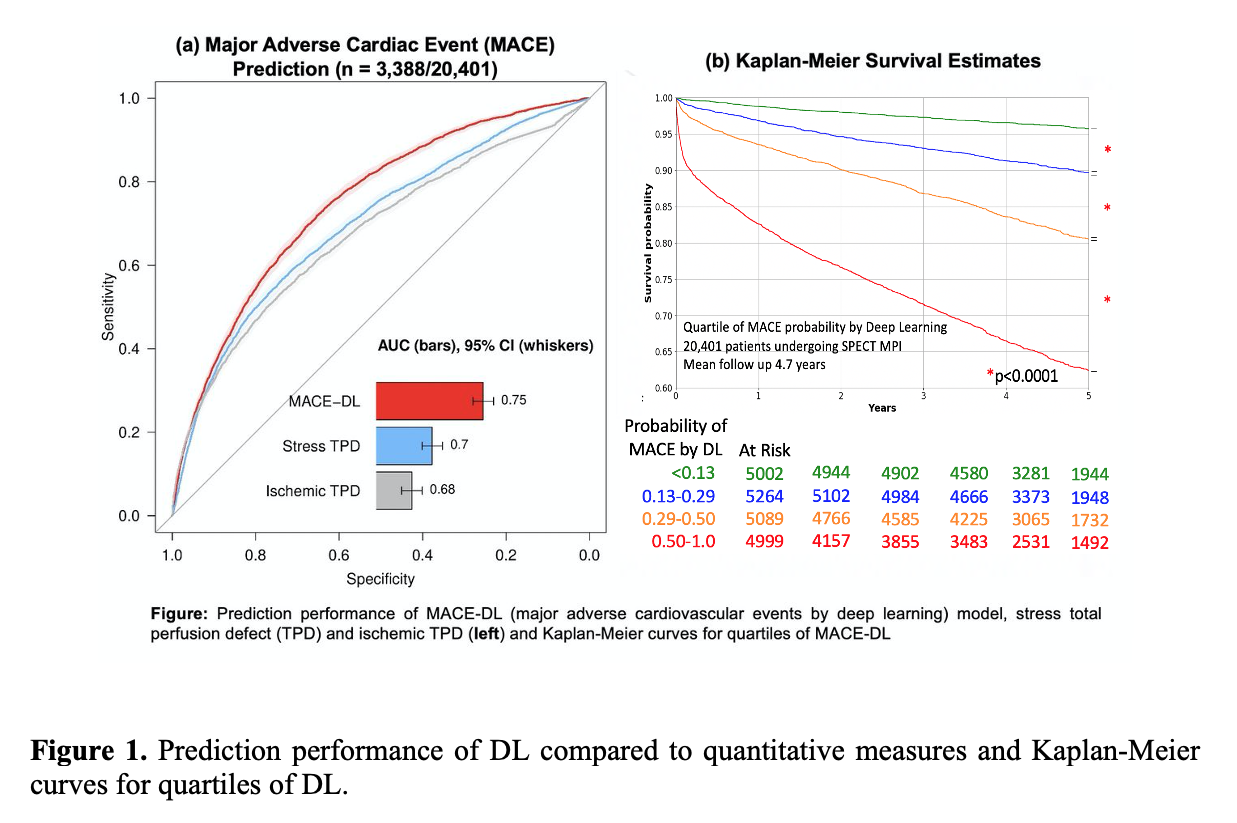SNMMI ’21: Deep Learning Network Utilizing SPECT Dataset Accurately Predicts Major Adverse Cardiac Events
 Utilizing data from a registry of more than 20,000 patients, researchers developed a novel deep learning network that has the potential to provide patients with an individualized prediction of their annualized risk for adverse events such as heart attack or death. The technique was shown to predict major adverse cardiac events more accurately than current standard imaging protocols, according to research presented at the SNMMI 2021 Annual Meeting.
Utilizing data from a registry of more than 20,000 patients, researchers developed a novel deep learning network that has the potential to provide patients with an individualized prediction of their annualized risk for adverse events such as heart attack or death. The technique was shown to predict major adverse cardiac events more accurately than current standard imaging protocols, according to research presented at the SNMMI 2021 Annual Meeting.
The study utilized information from the largest available multicenter SPECT dataset, the “REgistry of Fast myocardial perfusion Imaging with NExt generation SPECT” (REFINE SPECT), with 20,401 patients. All patients in the registry underwent SPECT MPI, and a deep learning network was used to score them on how likely they were to experience a major adverse cardiac event during the follow-up period. Subjects were followed for an average of 4.7 years.
The deep learning network highlighted regions of the heart that were associated with risk of major adverse cardiac events and provided a risk score in less than one second during testing. Patients with the highest deep learning scores had an annual major adverse cardiac event rate of 9.7 percent, a 10.2-fold increased risk compared to patients with the lowest scores.
“These findings show that artificial intelligence could be incorporated in standard clinical workstations to assist physicians in accurate and fast risk assessment of patients undergoing SPECT MPI scans,” said Ananya Singh, MS, a research software engineer in the Slomka Lab at Cedars-Sinai Medical Center in Los Angeles, California. “This work signifies the potential advantage of incorporating artificial intelligence techniques in standard imaging protocols to assist readers with risk stratification.”
